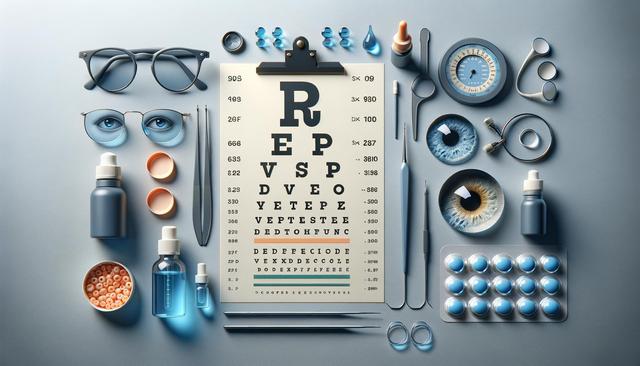Macular Degeneration Treatments: Protect Your Vision
Understanding Macular Degeneration
Macular degeneration, particularly age-related macular degeneration (AMD), is a common eye condition and a leading cause of vision loss among people aged 50 and older. It involves the deterioration of the macula, a small central area of the retina responsible for sharp, central vision necessary for reading, driving, and recognizing faces. There are two types of macular degeneration: dry and wet. The dry form is more common and less severe, while the wet form, although less common, can lead to more rapid and severe vision loss. Understanding the nature of this condition is crucial for exploring effective macular degeneration treatment options. By staying informed, individuals can make educated decisions about their eye health and take proactive steps to preserve their vision.

Exploring New Treatments for Macular Degeneration
The quest for effective new treatments for macular degeneration is ongoing, with researchers making significant strides in recent years. One of the most promising advancements is the use of anti-VEGF injections, which help to slow the progression of the wet form of the disease by inhibiting the growth of abnormal blood vessels in the retina. These macular degeneration injections have been a game-changer for many patients, offering hope for maintaining vision longer than previously possible.
In addition to injections, there are other innovative therapies under investigation. These include gene therapy, which aims to address the genetic factors contributing to AMD, and stem cell therapy, which focuses on regenerating damaged retinal cells. Such cutting-edge approaches hold the potential to not only slow the disease’s progression but also offer a degree of vision loss reversal.
The Role of Nutrition in Vision Health
While medical treatments are crucial, nutrition also plays a vital role in managing macular degeneration. Incorporating the best eye vitamins for macular degeneration into one’s diet can support overall eye health. Key nutrients include:
- Lutein and Zeaxanthin: Found in leafy greens, they help protect the macula from damage.
- Vitamin C and E: Antioxidants that may reduce the risk of developing advanced AMD.
- Zinc: Supports the structure of retinal cells.
- Omega-3 fatty acids: Found in fish, they may lower the risk of AMD progression.
By focusing on a balanced diet rich in these nutrients, individuals can complement medical treatments and enhance their eye health.
Living with Macular Degeneration
Living with macular degeneration requires adjustments and adaptations to maintain quality of life. Vision aids, such as magnifying glasses and specialized reading devices, can help individuals with AMD continue to perform daily activities. Additionally, engaging in regular eye exams is essential for monitoring the condition and adjusting treatment plans as needed.
Support groups and counseling services can provide emotional support and practical advice for coping with vision changes. By connecting with others facing similar challenges, individuals can find encouragement and share strategies for managing their condition effectively.
Future Outlook and Hope
The future of AMD treatment is filled with promise. Ongoing research into new therapies and technologies offers hope for more effective solutions and improved quality of life for those affected by this condition. As scientists continue to explore the genetic and environmental factors contributing to AMD, the potential for breakthroughs in prevention and treatment grows.
Staying informed about the latest developments and maintaining open communication with eye care professionals are essential steps for anyone dealing with macular degeneration. By combining medical treatments, nutritional support, and lifestyle adjustments, individuals can take proactive steps to protect their vision and enhance their overall well-being.
